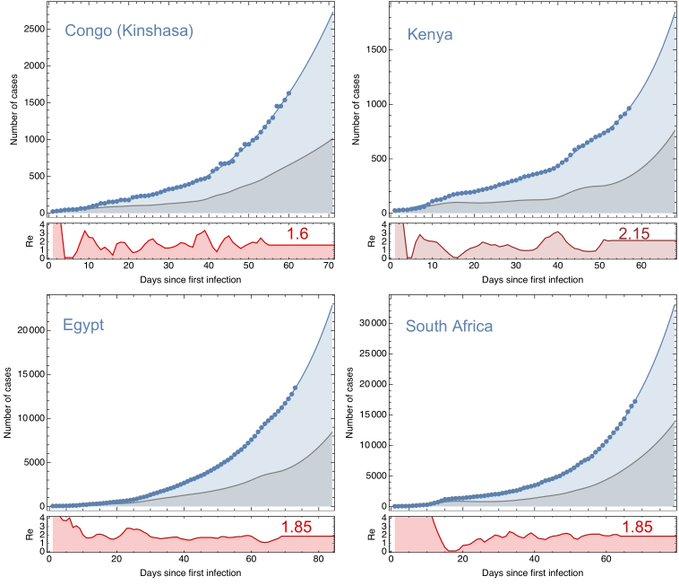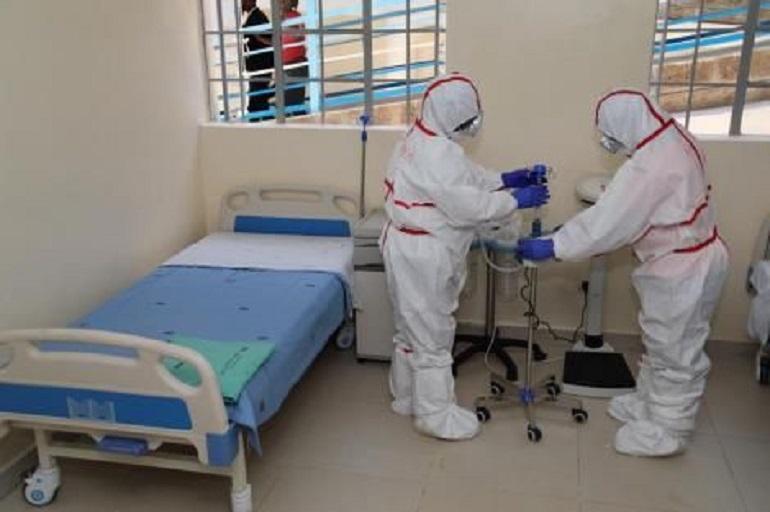Coronavirus infection is rising exponentially in major African countries

The new coronavirus seems to be on the rise in Africa. The latest figures show that the number of infections is increasing exponentially in countries such as Egypt, South Africa, Kenya, and the Democratic Republic of Congo. The reproduction rate – which represents the average number of people infected by an infected person – easily exceeds 1, meaning the virus is gaining momentum.
The new coronavirus reached Africa later than the other continents, and the infection rate remained lower, but that now seems to be reversing. Physics professor Nicolas Vandewalle of the University of Liège made hypotheses about the expansion of the coronavirus in Africa based on a mathematical model, and these prove to be of little hope.

For example, the infection rate in Egypt and South Africa is 1.85; 1.6 in the Democratic Republic of Congo and 2.15 in Kenya. This means that the coronavirus encircles it exponentially. Professor Vandewalle himself calls this evolution “really worrying”.
More than two months ago, Egypt was the first African country to have a confirmed case of the new coronavirus. Meanwhile, the virus has already penetrated every corner of the continent. The number of confirmed infections is, according to the Africa Centers for Disease Control and Prevention (Africa CDC), at 91,598 on Wednesday.
Officially, 2,912 people have already died, but according to experts, those figures are grossly underestimated, because there is hardly any testing in Africa.
Fatalities include former President of the People’s Republic of the Congo Jacques Joachim Yhombi-Opango and former Prime Minister of Somalia Nur Hassan Hussein.
The worst-hit is South Africa, where 15,515 infections have already been registered, and 264 people have died. This is followed by Egypt and Algeria, with 12,764 and 7,201 infections and 645 and 555 deaths, respectively. Morocco and Nigeria were not spared either.
Lockdown
South Africa immediately went into lockdown over two months ago at the outbreak of the new coronavirus. Since the beginning of this month, the measures have gradually eased, and from June 1, the schools will open again little by little.
At that time, a national food distribution plan will also be restarted, which will provide meals to 9 million impoverished children. That program was suspended along with the closure of the schools.
Egypt reported 720 new cases in the last 24 hours, the highest number since the first contamination was detected.
Caritas International, an NGO that helps victims of violence, natural disasters, and poverty, also raised the alarm on Monday about the situation in Congo, Rwanda, and Burundi, “which is quietly threatening to become a major disaster.” The Congolese capital Kinshasa – the third-largest city in Africa after Lagos and Cairo – has undoubtedly been hit.
“The country is taking measures, but the medical sector does not have the same opportunities as in Europe. There is limited access to water and a shortage of respirators and tests,” it says. Experts believe that the death toll will reach 10 percent. A figure is higher than that of the countries most affected today, such as Italy.
Ventilation equipment
How limited resources are, can also be seen in Burundi, where only a dozen respirators are currently available for a population of around 12 million.
Earlier this month, the World Health Organization warned that the new coronavirus could take a high toll in Africa. According to a study, between 29 and 44 million people could become infected in the first year, and between 83,000 and 190,000 people could die from the virus if no measures are taken to limit its spread.

The head of WHO Africa, Matshidiso Moeti, immediately insisted that most countries do take these measures. For example, international travel is prohibited, and large gatherings are not permitted. Despite this, the fragile health system could come under heavy pressure as the condition worsens, experts warn.
Rich countries
Several presidents of African countries said Tuesday that the rich countries abandon Africa, despite promises about financial aid. For example, countries such as Kenya, Senegal, and Ivory Coast barely have money for medical assistance and economic support to their citizens.




